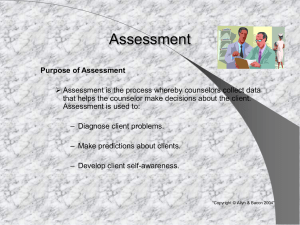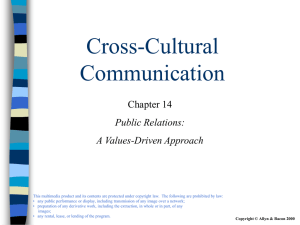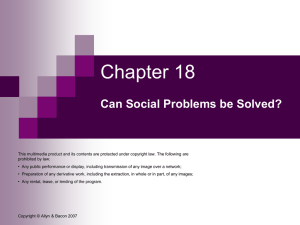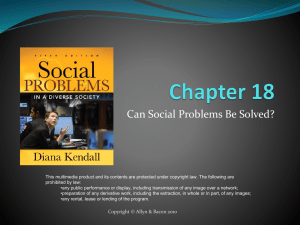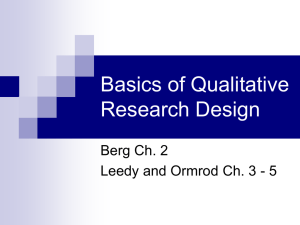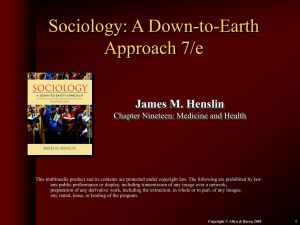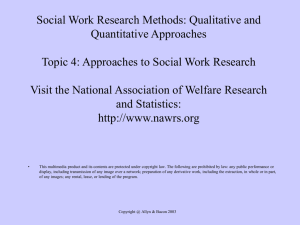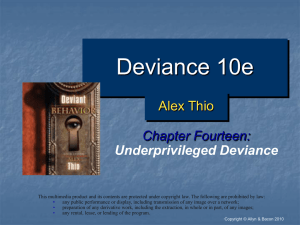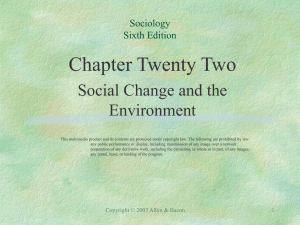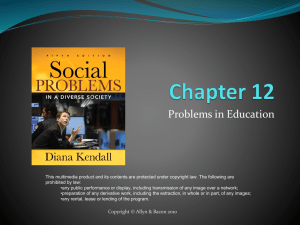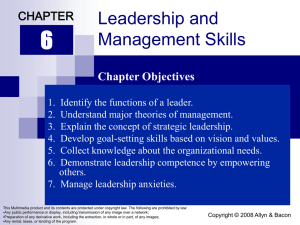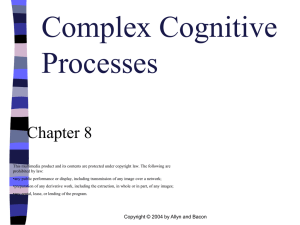lecture ch6
advertisement
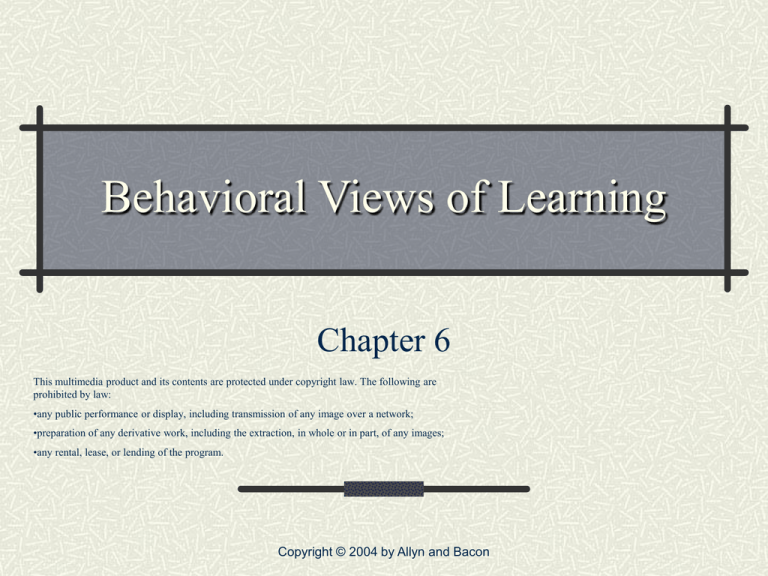
Behavioral Views of Learning Chapter 6 This multimedia product and its contents are protected under copyright law. The following are prohibited by law: •any public performance or display, including transmission of any image over a network; •preparation of any derivative work, including the extraction, in whole or in part, of any images; •any rental, lease, or lending of the program. Copyright © 2004 by Allyn and Bacon Overview • Understanding Learning • Early Explanations of Learning • Contiguity and Classical Conditioning • Operant Conditioning • Applied Behavior Analysis • Behavioral Approaches to Teaching & Management • Problems & Issues Copyright © 2004 by Allyn and Bacon Concept Map for Chapter 6 Problems & Issues Self-Regulated Learning & Cognitive Understanding Learning of Learning Behavioral Views of Learning Behavior Modification Behaviorism, Teaching & Management Early Explanations Contiguity and Classical Conditioning Applied Behavior Analysis Copyright © 2004 by Allyn and Bacon Operant Conditioning Definition of Learning • • • • When experience causes a relatively permanent change in knowledge or behavior Learning is the result of experience Learning is not the result of maturation or temporary conditions (illness) Behavioural View Cognitive View Copyright © 2004 by Allyn and Bacon Classical Conditioning Unconditioned Stimulus Unconditioned Response Neutral Stimulus Unconditioned Stimulus Unconditioned Response Repeat pairing US with NS Conditioned Stimulus Conditioned Response Copyright © 2004 by Allyn and Bacon Skinner: Operant Conditioning • Operants: Deliberate actions Operate on the environment to bring about a consequence (not just respondent) • Thorndike’s Law of Effect Set the stage for Skinner • ABC’s Antecedent – behaviour--consequence • Reinforcement Positive or negative Strengthens the behaviour it follows • Punishment Presentation or removal Serves to decrease or suppress a behavior Copyright © 2004 by Allyn and Bacon Reinforcement Schedules Typ es of R ein forc em en t S c h ed u les C on tin u ou s In term itten t V ariab le F ixed In terval R atio R atio Copyright © 2004 by Allyn and Bacon In terval Applied Behavior Analysis (aka Behaviour Modification) • Baseline behavior • Target behavior • ABAB • Classroom application: 1 2 3 - Specify the desired behavior - Plan a specific intervention - Keep track of the results Copyright © 2004 by Allyn and Bacon Interventions: Encouraging Positive Behavior • Teacher attention 1. 2. 3. • Praise good behaviours; ignore misbehaviour Contingent (immediate) Specific (for target behavior) Sincere (not ridiculous) Premack principle (using bait exchange high for low) • • Shaping – reinforce progress Positive practice Copyright © 2004 by Allyn and Bacon Coping with Undesirable Behaviors • Negative reinforcement: “No recess • • • • until…” Satiation: “I would like 1000 of those perfect spit wads, please!” Reprimands: soft & private Response cost: pay the fine Social isolation Copyright © 2004 by Allyn and Bacon Coping with Undesirable Behaviors • Cautions: Use a two-pronged approach: #1 - Punishment for undesired behavior #2 - Clarify and reinforce desired behavior Copyright © 2004 by Allyn and Bacon Behavioral approach to Teaching: Mastery Learning • Students must demonstrate competence before moving to next unit • Mastery means 80–90% correct • Focuses on basic skills Copyright © 2004 by Allyn and Bacon Behavioral Management • Group consequences • Token reinforcement • Contingency contracts Copyright © 2004 by Allyn and Bacon Recent Approaches: SelfRegulated Learning (expanding behaviorism) • The responsibility and ability to learn rest with the student (student takes active role in own B-mod). • Self-management (for lifelong learning) Set goals and make the goals public Standards and effect on performance Record & evaluate performance Promote self-reinforcement Copyright © 2004 by Allyn and Bacon Recent Approaches: Cognitive Behavior Modification & Self-Instruction • Similar to self-regulated learning • Adds thinking and self-talk Vygotsky (private speech) Meichenbaum (cognitive self instruction) • More cognitive than behavioral approach Copyright © 2004 by Allyn and Bacon Cognitive Behavior Modification & Self-Instruction • Teaching self-talk: Demonstrate & supervise Talk out loud while practicing, student imitates Whisper while practicing, student imitates Work toward private speech while practicing Copyright © 2004 by Allyn and Bacon Problems & Issues • Extrinsic rewards may lead to loss of • • • • interest in learning for learning’s sake Decrease in motivation Equality Control ethics See Point/Counterpoint Copyright © 2004 by Allyn and Bacon
